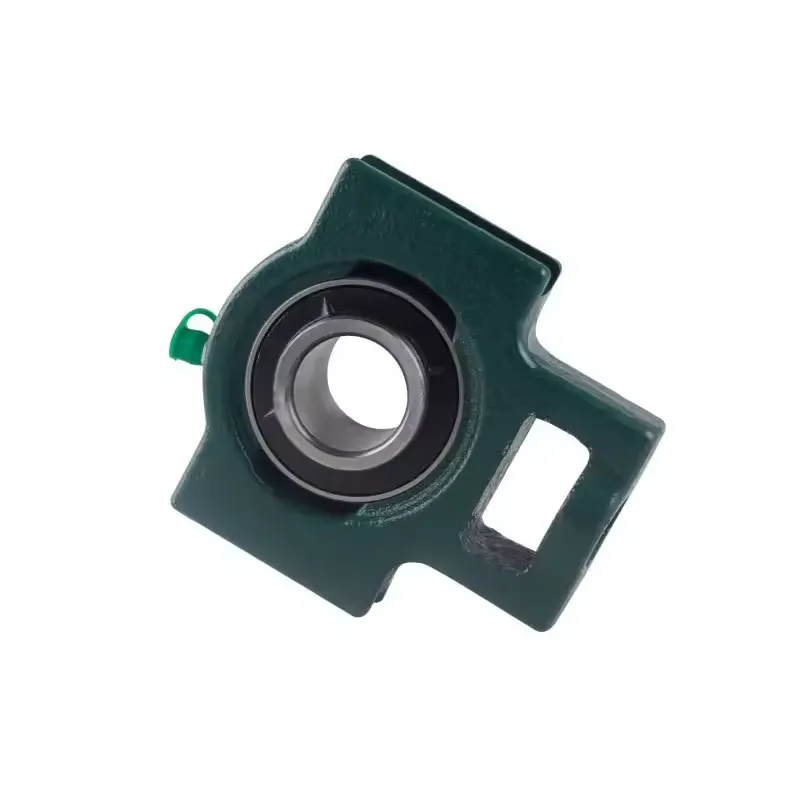Nov . 28, 2024 10:35 Back to list
Wholesale Farm Bearings for Efficient Agricultural Equipment Performance and Durability
Understanding Wholesale Farm Bearings A Key Component in Agriculture
In the intricate world of agriculture, the machinery and equipment used are often the backbone of productivity and efficiency. One critical component that plays a significant role, yet often goes unnoticed, is bearings. Specifically, wholesale farm bearings are essential in ensuring that farming equipment operates smoothly and reliably. This article explores the importance of wholesale farm bearings, their types, and their role in modern agriculture.
What Are Farm Bearings?
Bearings are mechanical components that allow for relative motion between two parts. They reduce friction between moving parts, which is crucial in high-load environments such as farms. Farm bearings come in various forms, including ball bearings, roller bearings, and mounted bearings. Each type serves specific applications, from tractors and harvesters to irrigation systems and conveyors.
The Importance of Wholesale Procurement
Purchasing bearings in bulk, or wholesale, is a strategy many farming operations employ. By opting for wholesale farm bearings, farmers can significantly reduce costs while maintaining high-quality standards. Buying in bulk not only leads to better pricing but also ensures that farmers have a steady supply of essential parts, minimizing downtime due to equipment failures.
In addition, wholesale suppliers often provide a wider variety of products, allowing for customized solutions tailored to specific agricultural needs. This is especially beneficial in the agricultural sector, where different types of machinery might require specialized bearings that aren’t always available through retail channels.
Types of Bearings Used in Agriculture
1. Ball Bearings These are the most common type and are used in applications where there is a need to support both radial and axial loads. They are versatile and suitable for various agricultural equipment like tractors, balers, and tillage apparatus.
2. Roller Bearings These are designed to support heavier loads and are often used in equipment that experiences high impact or stress. Their design allows for higher load capacities, making them ideal for larger machines like combine harvesters.
3. Mounted Bearings These are ready-to-install bearings that come with a housing unit. Mounted bearings are useful in agricultural applications where space is limited and ease of installation is a priority.
4. Agricultural Specialty Bearings Some suppliers offer specific designs tailored for farming conditions, which may be exposed to contaminants, moisture, and varying temperatures. Selecting the right material and design can significantly enhance the lifespan of bearings used in agriculture.
How to Choose the Right Wholesale Farm Bearings
wholesale farm bearings

Choosing the right bearings for agricultural equipment involves several factors
- Load Capacity Understanding the maximum load that the bearing will need to support is crucial. Exceeding the load capacity can lead to premature failure.
- Operating Environment Bearings exposed to extreme conditions, like dust, mud, or moisture, need special seals or coatings to withstand wear and corrosion.
- Speed Ratings Bearing speed is essential, especially in high-speed applications. Ensure the selected bearing can handle the operational speeds required.
- Compatibility Bearings must be compatible with the specific machinery in which they will be installed. Consulting equipment manuals or a knowledgeable supplier can help in selecting the right type.
Benefits of Using Quality Bearings
Investing in high-quality bearings, especially when purchased wholesale, provides several advantages
1. Increased Equipment Longevity Quality bearings can significantly extend the life of machinery, reducing replacement frequency and overall maintenance costs.
2. Improved Efficiency With reduced friction and smooth operation, equipment can work more efficiently, leading to better fuel consumption and higher productivity.
3. Reduced Downtime Reliable bearings decrease the chances of machinery failure, which can halt operations and lead to financial losses.
Conclusion
Wholesale farm bearings are an indispensable part of agricultural machinery, serving as the silent workhorses that enable a seamless flow of operations. By understanding the types of bearings available and the importance of quality procurement, farmers can ensure their equipment runs smoothly and efficiently. This not only boosts productivity but also enhances profitability, solidifying the essential role that wholesale farm bearings play in modern agriculture. Whether for a large-scale farm or a smaller operation, investing in quality bearings is an investment in the future.
Latest news
-
39602/F33 Square Bore Disc Harrow Bearing - Heavy-Duty Ag Bearings
NewsAug.30,2025
-
UCFC212-38 Round Flange Housing 4 Bolt Ball Bearing - Durable & Precision
NewsAug.29,2025
-
GW315PPB11 Ball Round Hole Agricultural Bearings - Durable & Reliable.
NewsAug.28,2025
-
Top Spherical Roller Bearing Material Exporter - High-Performance Alloys
NewsAug.27,2025
-
Durable PLC 110-190 Spherical Roller Bearing for Mixer Reducer
NewsAug.26,2025
-
CSK-2RS Sprag Clutch One Way Bearing: Sealed, High Torque, Durable
NewsAug.25,2025